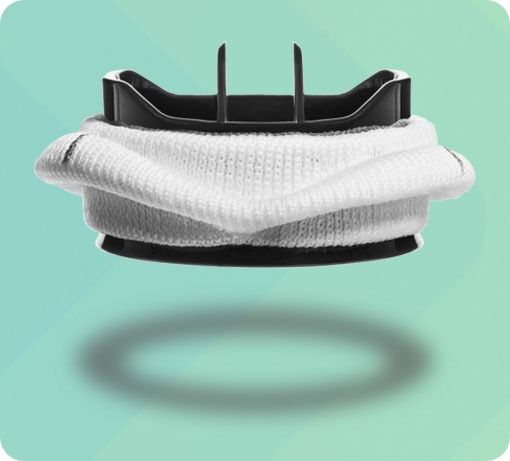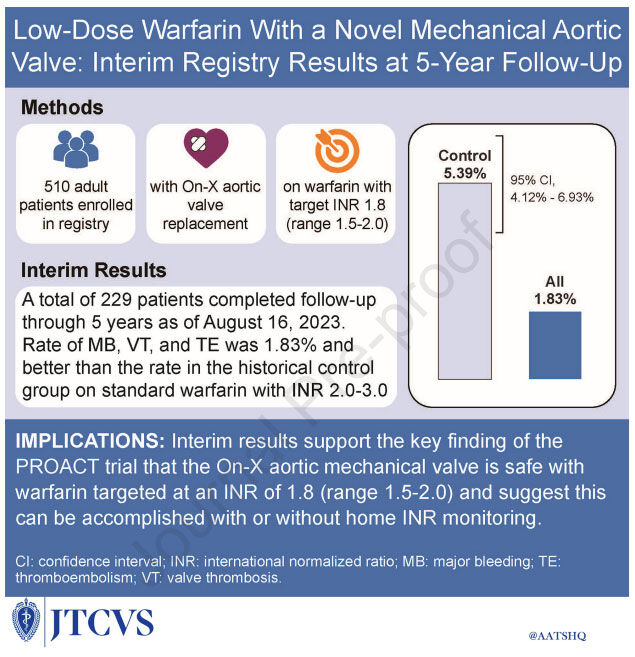Research Alert: New 5-Year Safety Outcomes for On-X Mechanical Aortic Valve at Low INR
Written By: Adam Pick, Patient Advocate, Author & Website Founder
Published: May 16, 2024
At the recent American Association for Thoracic Surgery (AATS) meeting, Dr. Marc Gerdisch presented new findings for the long-term safety of the On-X mechanical aortic valve at a low International Normalized Ratio (INR). INR is a standardized method to assess the degree of anticoagulation in the blood. This is critical for patients who receive mechanical valve replacements as they require lifelong anticoagulation (e.g. use of blood thinners) to prevent clotting which could lead to a stroke.
To help our patient community better understand the important implications of this study about the On-X mechanical valve replacements, I asked Dr. Gerdisch to share the highlights.

Dr. Gerdisch Says…
It has been 10 years since we completed the PROACT randomized control study that led to clearance by the FDA of the On-X Aortic mechanical valve to be managed with low dose warfarin, keeping the INR between 1.5 and 2. The standard for mechanical aortic valves is INR between 2 and 3.
Of course, the advantage of mechanical valves is the very low likelihood of needing repeat operations because they do not wear out. The concern for patients, especially those with an active lifestyle has been the risk of bleeding. Patients experienced a 65% reduction of bleeding risk in the PROACT trial. The FDA required a prospective registry of patients being managed at many centers to confirm the advantage of lower anticoagulation in general practice.
For this study, Low-Does Warfarin with a Novel Mechanical Aortic Valve: Interim Registry Results at 5-Year Follow-Up, we enrolled 510 patients in 23 centers in the United States, United Kingdom, and Canada.
At one year follow-up we found an 85% reduction in major bleeding compared to a control group receiving standard warfarin dose from the original study. Last August, we decided to look specifically at the patients in the registry who had reached 5 years on low dose warfarin, to determine how the affect was holding up over time.

For the 229 patients that had reached 5 years, major bleeding was still 87% less. Perhaps just as important, most patients (83%) in the registry are managed in INR clinics and not using home monitoring devices, which reflects the pattern seen in real-world practice.
We should recognize that people who have tissue valves still have some bleeding events and about one third of those patients are taking some form of anticoagulation. As such, the 87% reduction makes the On-X aortic valve competitive regarding bleeding risk, but with the advantage of unchanging and durable function.
The new study findings provide value for people seeking lifetime management with minimal possibility of additional interventions. It is a particularly important option for people with expected longevity.
Many Thanks to Dr. Gerdisch!
As I have received several questions about mechanical heart valve replacements recently, the timing of this study and Dr. Gerdisch’s remarks are very helpful for the patients in our community. Many thanks to Dr. Marc Gerdisch!
Keep on tickin!
Adam














